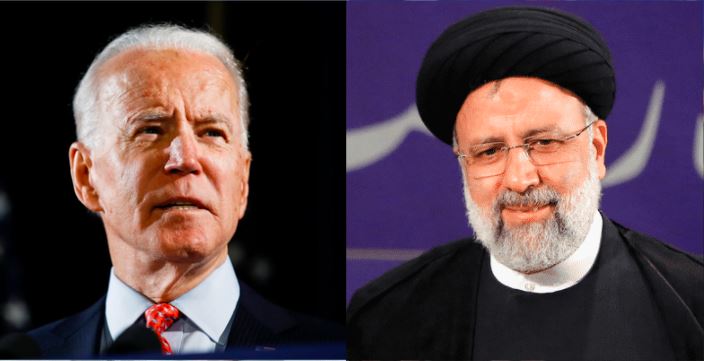The United States has decoupled the issue of reviving the Iran nuclear deal and removing the crippling sanctions imposed on Tehran. Now, the White House is solely focused on getting the Joint Comprehensive Plan of Action (JCPOA) revived, and is in turn not promising to lift any of the harsh sanctions which are devastating Iran’s economy. The Shi’ite nation has come to realise the same, which is why it is behaving like a headless chicken. However, incoming President Ebrahim Raisi has made his stand abundantly clear – and the Islamist hardliner’s message to America kills the prospects of another deal being agreed upon.
Iran wants complete sanctions removal alongside the nuclear deal. It also wants the US to commit to never walking out of the nuclear deal again. Now, back in the States, completely removing sanctions imposed against Iran would be a political suicide for Joe Biden and everyone associated with his administration. Meanwhile, Ebrahim Raisi is said to have made the choice regarding Iran’s next foreign minister, and it is no good news for pro-deal enthusiasts.
Ali Bagheri Kani – an outspoken opponent of the 2015 nuclear deal agreement is said to have been chosen to serve as Iran’s next foreign minister. For diplomats negotiating a return to the nuclear deal in Vienna, the choice of Raisi’s foreign minister is a clear message of the new Iranian administration not being keen to revive the JCPOA.
Essentially, both countries have taken positions, which make agreeing on a deal incredibly difficult, or rather, impossible.
So, the United States and Iran are back to fighting. And they are fighting hard. Recently, the US military conducted defensive precision airstrikes against three facilities near the Iraq-Syria border region on Sunday evening. According to Pentagon Press Secretary John Kirby, the facilities were used by several Iran-backed militia groups engaged in unmanned aerial vehicle (UAV) attacks against US personnel and facilities in Iraq, including Kata’ib Hezbollah (KH) and Kata’ib Sayyid al-Shuhada (KSS).
This was followed by regional militias, at the behest of Iran, launching a rocket attack against a US base occupying an oil field in eastern Syria. The rocket attack is said to have wounded several of the special operations forces there, according to Iranian, Russian, and Syrian state media.
In his first public comments after being elected, Raisi brushed aside the US’ calls for Iran to agree to follow-up discussions on expanding the initial nuclear deal to include its ballistic missile program and its support for regional groups that the US designates as terrorist organisations. He said the ballistic nuclear programme and support for terror organisations are “non-negotiable”. This shows how Raisi is least interested to woo America and is instead determined to fulfill his larger toxic religious agenda.
The US, meanwhile, is not holding back either. Late last month, the U.S. Justice Department seized 33 Iranian government-affiliated media websites, as well as three of the Iraqi group Kataeb Hezbollah, which it said were hosted on US-owned domains in violation of sanctions. The sites reportedly had a clear association with the Islamic Revolutionary Guard Corp’s Quds Force (IRGC). Among the sites which were seized, the names of Press TV and Al-Alam – Iran’s main English language and Arabic language broadcasters figured prominently.
The US said the sites, operating under the guise of genuine news outlets, were waging a “global disinformation campaign” to influence US policy and push Iranian propaganda around the world. At a time when the window for both the countries to arrive at a consensus regarding the nuclear deal is narrowing, for them to spar in such an aggressive manner only further proves our point of Iran’s incoming administration taking intuitive steps to derail the negotiations underway in Vienna.
For Iran, the nuclear deal is not something that it is planning to follow, but it is a strong bargaining tool to get Western sanctions lifted. The West, led by the Biden administration, assumes that Iran will follow the terms of the deal and stop pursuing a nuclear bomb, but as has already been proven by Donald Trump, Iran will never follow the deal, and would only sign the deal in the first place so that sanctions are lifted. So as long as the Biden administration does not offer a sanctions waiver, Iran has nothing to gain from the deal. But no matter how badly the new US administration is inclined to do the deal, lifting sanctions on Iran in return will not just be a strategic blunder but would also mean political suicide for the Biden administration. Iran knows this, and therefore, Ebrahim Raisi may not be deeply committed to renegotiate and close the deal at all.
The Iran nuclear deal, therefore, is dead on arrival – and recent escalation in tensions between Iran and the United States is only further derailing the prospects of the JCPOA ever being revived.







